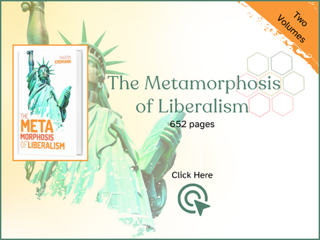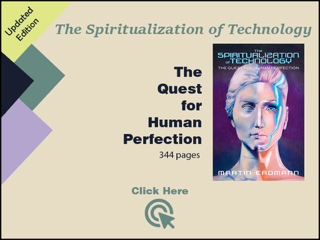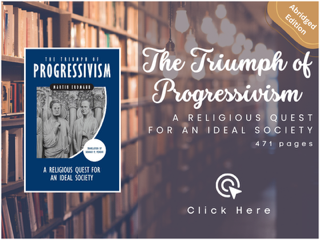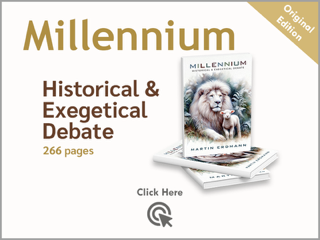RESEARCH RESOURCES includes additional resources for those who wish to do further research on a variety of topics that we have referenced in our writings. This archive of scholarly research reflects a wide diversity in thought, opinion and beliefs. We do not necessarily agree with everything written by the authors, nor do we endorse some of their conclusions, nor can we agree with all of their theology. However, the works listed on this page present valuable historical information, much of it published outside of mainstream publishers. We believe it is important to raise awareness of these RESEARCH RESOURCES as it is unlikely you will learn of them elsewhere.
Iowa Research Group, Inc. was formed in 1994 to facilitate research and publication regarding issues affecting the Christian life. Over the years we have worked with many researchers, writers and authors on an extensive array of historical research projects. Some of their published works have included research to which we have contributed. Other writing projects have provided valuable insights and background documentation to our own research. A few works we have published via our publishing arm Conscience Press.
RESEARCH RESOURCES also includes links to other supplementary research materials available online that we have either referenced in our writings or complement the body of research we have published.
Parental Rights and Responsibilities Act (PRRA)
Our alternative perspective on the Parental Rights and Responsibilities Act (PRRA). While all of the major ministries and organizations have jumped on the bandwagon for the PRRA, quietly behind the scenes a group of education reform researchers has been compiling legal analyses, documentation and other data that suggest that there are some serious flaws in the PRRA — flaws which could backfire in adverse ways, harming the very families that the PRRA is supposed to help!
Ed Tarkowski Archive
Ed Tarkowski’s website contains informative material that might be of interest to you. His site is no longer available at its original address so we have compiled it here to make it available.
Discernment Ministries Archive
Discernment Ministries was founded in 1989 by Travers and Jewel van der Merwe. The site is no longer available at its original address but we have received permission to make it available here.

Conscience Press published Charlotte Iserbyt’s book the deliberate dumbing down of america: A Chronological Paper Trail, Conscience Press (1999, 2011). This website contains many of Charlotte’s other published works.
Charlotte Iserbyt’s NewsWithViews article archive
Charlotte Iserbyt’s Blog: ABCs of Dumbdown
(In the years 2014-2015 Sarah Leslie helped Charlotte by serving as her editor for this blog.)

Church historian and theologian Dr. Martin Erdmann analyzes classical and progressive Liberalism in the case of the United States and contrasts them with the Christian faith. The author draws on a vast storehouse of academic disciplines: politics, economics, history, biology, theology, philosophy, psychology and sociology in Europe and the United States. He makes a compelling demonstration how the ideology of the newer progressive Liberalism has hijacked even the older concepts of “freedom” in classical Liberalism. The purpose of this book is to expose this deliberate obfuscation through history. Dr. Erdmann shows how classical Liberalism evolved into progressive Liberalism, which later became known as “Progressivism.” Some reject Progressivism because they do not want to live in a socialist system, which tends toward absolute control, and instead put their hopes in classical Liberalism. What they fail to recognize is that the words “freedom” and “prosperity” offered by Liberalism do not mean what they appear; in fact, because Progressivism has redefined their meaning, they actually mean the opposite. The most shocking finding is this: Both Liberalism and Progressivism are not diametrically opposed. Instead, they are merely two sides of the same civil religion. In fact, the history in this book warns us to stop pursuing the godless path of classical and progressive Liberalism, no matter if official church leaders promote it. American history clearly shows that these solutions offer empty promises of prosperity and peace, but, in reality, lead to poverty, deprivation of freedom, and war. Christians in particular should reject these worldly philosophies that oppose Christ. Rather, our hope lies in man's submission to the God of the Bible and the practice of Christian ethics. Only then will it be possible for major improvements in society to be achieved. History bears witness to this as well.
Hover over image to see summary

This study was commissioned by the medical faculty of the University Hospital Basel in order to obtain an ethical framework of the limits of nanotechnology. The author came across highly interesting facts and correlations in a research process lasting several years. Not only medical professionals can benefit from his findings, but all Christians who want to obtain a biblically sound basis for their actions in view of the rapidly advancing developments in computer science, medicine and genetic engineering. The author begins by showing that transitional periods such as the Hellenistic era (323-31 B.C.), the late Middle Ages (1250-1500), the Renaissance (1300-1700), and the Enlightenment (1650-1800) significantly shaped the past three centuries and continue to influence our lives today. These eras laid the philosophical and religious foundation for the following developments: the mechanistic worldview emerged in the 18th century, the notion of perpetual human evolution formed in the 19th century, the belief in an omnipotent science prevailed in the 20th century, and nanotechnology is developing in the 21st century. This sheds light on two central questions posed by futurologists, genetic technologists, and nanomedical scientists: what is the nature of human beings, and how can it be changed? Next, the author analyzes man's quest for perfection from several perspectives, such as the history of philosophy, the humanities and Christian ethics. It becomes obvious that the roots of perfectionism go far back to the time of Greek philosophy, Hermeticism, Gnosticism and Neoplatonism. These philosophies claim to be heirs of the "prisca theologia", the ancient theology. This theology had made the attainment of the "divinity" of man and thus the highest level of perfection its supreme goal. In conclusion, the author points out ethical norms on the basis of Christian and western values which ensure that nanomedicine is used for the benefit of the general public. In particular, this requires respectful treatment with clearly defined boundaries between machine and human. It becomes clear that the Christian notion of God's likeness in man contradicts the bizarre future vision of a transhumanist post-humanity. The author lays out in detail that real scientific and technological progress, especially in the field of nanomedicine, can best be realized on the basis of Christian ethics.
Hover over image to see summary

The idea of progress - the belief that humanity has been advancing constantly from past to present, and that this process will continue for the foreseeable future - is a worldview that has developed exclusively in the Western world. The idea has occupied a central position in the thinking of modern civilization from the late seventeenth-century Enlightenment to the present day. It is much more than a political theory. In its heyday, it permeated every area of social life. No one could avoid its pervasive influence; even those who took a negative view of abstract ideas succumbed to its irresistible charm. It came to constitute the predominant civil religion of Western civilization - a general religiosity in the political realm. Furthermore, it became part of the modern idea that every attempt to criticize amounts to an act of infidelity. It is time to realize that the ideology of continual social advance and human improvement essentially constitutes a religion in its own right, which, despite often bearing the name of Christianity, is in resolute opposition to biblical beliefs.
Hover over image to see summary

The twentieth century has been the age of ever expanding technocracy, a feature which neither that century’s passing nor the shift from a modernist paradigm to postmodernity has diminished. Rather, the drift towards rule by technocrats, allegedly impartial souls, undriven by dogma and supposedly free of the partisan concerns that motivate the rest of us, has intensified. Neither has religious life, avowedly the realm of the spirit and private communion with God, been free of this propensity. Instead, the twentieth century witnessed the rise of the ecumenical movement, an attempt to unify the disparate churches on a global basis – a sort of ecclesiastical counterpart to the League of Nations and, later, the United Nations. Indeed, as this book shows, churchly pressure played a role in the birth of the U.N. itself. Dr. Erdmann ably traces the story from 1919 to 1945. The results are illuminating. Scrutinising the documentary evidence in impressive detail, he demonstrates how key, highly placed individuals in both Britain and America attempted to harness the churches for a secular technocratic programme to build a new world order – and ultimately a world government – that would rest upon the minimalist theology of a vague Christian ethic. The ironical conclusion was that the age that was in full retreat from Christian orthodoxy and supernaturalism witnessed a paradoxical confidence that the Kingdom of God – established, of course, by human management skills – was just around the corner.
Hover over image to see summary

The belief in a literal millennium was an important aspect in the Christian eschatology of the ante-Nicene age. Most of the Asiatic Church Fathers derived their chiliastic convictions not only from the millennial passage of Revelation, but also from the Jewish concept of a Golden Age, as described by the Hebrew Prophets and further developed by Jewish apocalyptic writers. The chiliastic doctrine was challenged, on exegetical and philosophical grounds, by the Alexandrian school of theology in the third century. The Church's elevation to imperial favour by Constantine was followed by a further shift in the understanding of the millennium. The chiliastic hope of a future earthly reign of Christ was substituted with the view of a realized millennium constituting the secular dominion of the Roman Church. The factor which most contributed to this change was Augustine's spiritualized interpretation of the first resurrection. He understood it to mean a resurrection of those dead in sin, raised to spiritual life. In his book, De civitate dei, he advanced the opinion that the kingdom of God was already set up at Christ's first coming and nothing remained to be accomplished before the final judgment except the brief reign of the Antichrist. Thus the teaching of a literal millennium became discredited because it was perverted by some of its friends and misrepresented by its opponents.
Hover over image to see summary
(English speakers will get automatically redirected to the English website of the Institute)
VERAX INSTITUTE MOBILE APP
Where Dr. Erdmann’s sermons are published and accessible. For more information, email: me@veraxinsitute.us

They said it would never happen in America, but the First Amendment was severely attacked in Nebraska from 1977 to 1984. Christian Conviction v. State Persecution chronicles not only the events but why they took place. This was not isolated to a single denomination or group. Among the churches attacked were Amish, Mennonite, Apostolic, Pentecostal, Baptist, and Church of Christ. Among the homeschool families, the list expands farther. Faith, freedom, and liberty were all under attack by the Nebraska Department of Education and their allies in the courts and the state legislature.
Before I ever met Paul, I had seen his face on the CBN film footage of him being hauled away by sheriff’s deputies from an altar where he was praying with a group of men. As Paul writes in this book, “Few cases of the loss of Christian freedom have drawn more attention than the jailing of the pastor and the padlocking of the [Faith Baptist] church building in Louisville, Nebraska.” The powerful film footage and photos from this incident ‘went viral’ across the American evangelical landscape, and there was widespread outrage and concern. This persecution backfired: It would cement the courage and convictions of an entire generation of parents who had become increasingly alarmed about what was happening in public schools.
— Sarah Leslie
